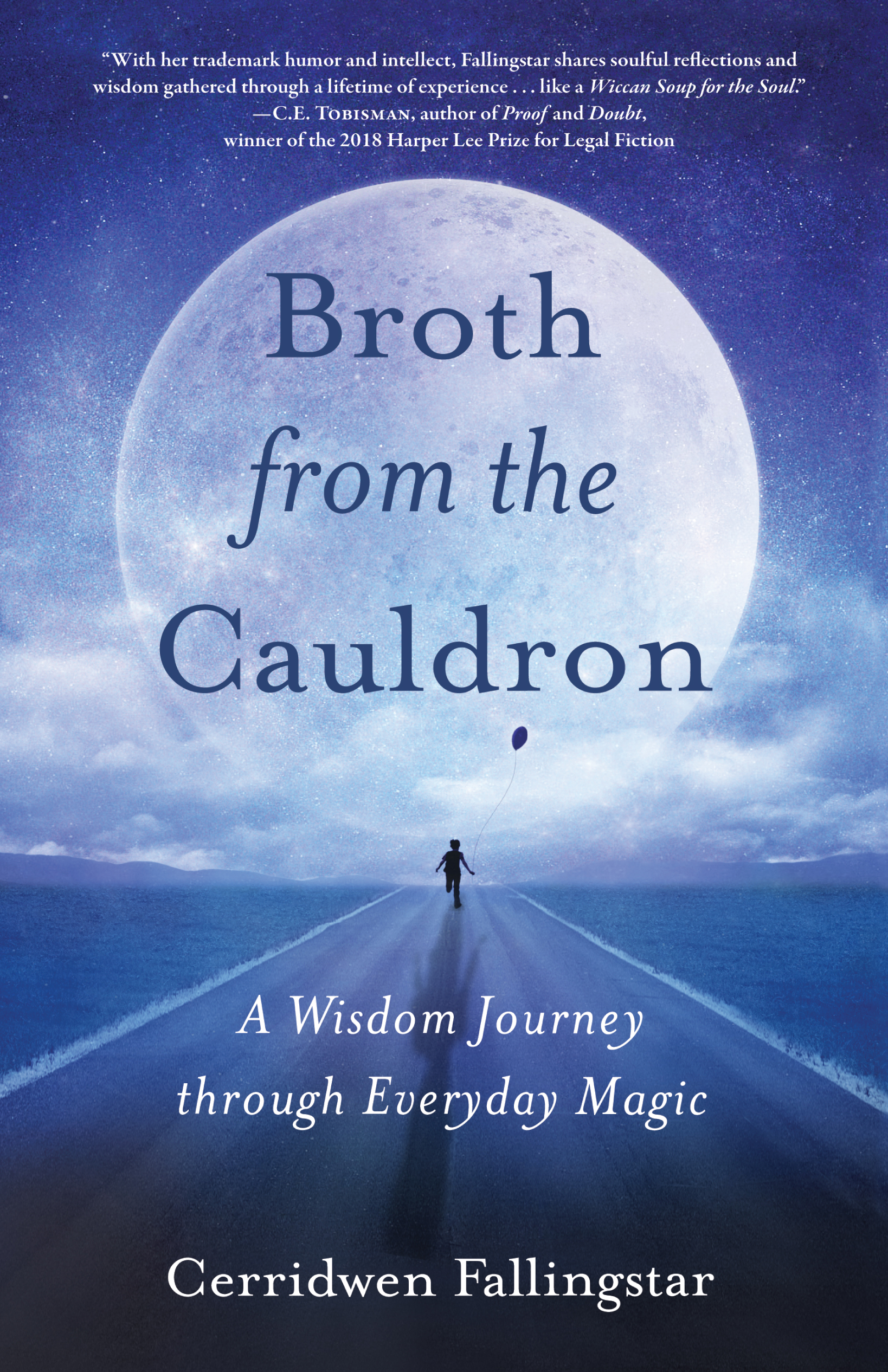
The following is an excerpt from Broth from the Cauldron: A Wisdom Journey through Everyday Magic , a memoir by Cerridwen Fallingstar.
~
The Man Behind the Curtain
“I am Oz, the Great and Terrible…Pay no attention to that man behind the curtain!” ~ The Wizard of Oz
I am fortunate to live just five minutes from Spirit Rock, a Buddhist meditation center, which brings in speakers and workshop leaders from all over the world. My friend David Dobrer, a powerful healer in his own right, suggested I go to see a well-known Thai monk, Ajahn Jumnien, while he was there.
The meditation hall was packed, but I had gotten there early enough to have a close view of the monk. He was a man in his 60s with the beaming smile and infectious giggle characteristic of what many might call enlightenment.
People asked various questions. One asked how Jumnien had made the decision to become a monk.
“Oh, it was not my decision. My father, my family sent me to the temple. It is very good for the family’s karma to send a son to be a monk. I did not want to go, not really. But my mother died when I was eight. I knew that no one would ever love me like that again. So I thought I might as well become a monk.”
A chill breeze of discontent rippled around the room like frost feathering a window. The picture of a heartbroken eight-year-old being sent to the temple against his will was not a comfortable one.
The subject of vegetarianism came up. “Naturally I am a vegetarian,” Jumnien noted serenely. “I am a Buddhist monk. But I do eat meat sometimes.”
The woman questioning him, who had been preening herself on her own unwavering vegetarianism, sputtered, “But how can you do that!”
Jumnien explained that the people of his country are honored to help feed the monks, and that when one visits their home, even the poorest wish to give the very best they have, which often includes fish, chicken, or pork. “The people honor the monks— they give us the best that they have. It would create suffering for me to reject their gift.”
“What about the suffering of the animal?” the woman shrilled.
Jumnien smiled hugely. “In these cases, the animal is already dead. And cooked.”
He leaned toward the crowd, grinning conspiratorially. “And delicious!” he added.
The frost deepened into a blizzard. Several participants rose, one by one, excoriating the monk for his lack of commitment to his Buddhist principles. They would not have eaten flesh! They would have browbeaten the simple people offering the best they had, showed them how wrong they were! That monk had missed a teaching opportunity. They would have given that chicken a decent burial!
I watched carefully to see how the monk would respond to the barrage of criticism. It sailed right through him. The monk’s smile exposed his missing teeth, folded his face into an origami of wrinkles. There was amusement in his smile. But not an amusement fueled with contempt and superiority. It was the sad amusement of an open heart, a broken heart, which sees the frightened children trying to be right and powerful and good and feels the thwarted love beneath the silly, self-important posturing.
Years of meditation had burnt Jumnien’s ego to ash. He was not polished, or consistent. He was only interested in doing the most loving thing he could do in each moment. He understood that the rules of any religion are there to provide a structure, like an aqueduct, through which love and awakening can flow. Sometimes what was right in the moment flowed outside those structures.
No one can deny that vegetarianism is a lighter way to live on the planet. And for most vegetarians, their deep compassion for all sentient beings is behind their choice. It is funny—in that sad way—how quickly a decision grounded in love can turn into a club with which to savage those we see as less conscious. Over and over we see something as undeniably well-intentioned and truthful as vegetarianism, or outrage on behalf of the disadvantaged, metamorphose into more of the ugly violence we long to escape.
It’s like the old story of the guy who angrily refused to ever yield his right of way to traffic, who was eventually killed in a car accident. His tombstone allegedly read, “He was right. Dead right.”
Righteousness is rigid. When the brain ragefully rejoices in its rightness, the heart goes into rigor mortis, stiff and unyielding. Sometimes we get so caught up in our principles, we forget what those principles were for. We confuse the form with the essence.
When I become harsh and judgmental, I know I am suffering. I know I need to address the pain in my own heart, to cry, to soften, to be afraid. Then the hard shell of rightness around my heart cracks and dissolves, and I see the people I have been judging as the frightened children that they are, doing their bumbling best. The difficulty is that, for me to get there, I need to get off my high horse and see myself as the frightened and often incompetent child that I am, instead of the powerful authority who is so much smarter/wiser/better than they.
It is easier to take refuge in the hard stone walls of our beliefs, our chosen facts, than to take refuge in the Buddha, which is to say, in the heart. The question I always try to ask myself is whether my beliefs, ethics, and principles are creating compassion or judgment. When the answer is judgment, I know what I need to do.
~
Excerpted from Broth from the Cauldron: A Wisdom Journey through Everyday Magic by Cerridwen Fallingstar. © 2020 by Cerridwen Fallingstar. She Writes Press, a division of SparkPoint Studio, LLC.


 Share on bsky
Share on bsky




Read 1 comment and reply